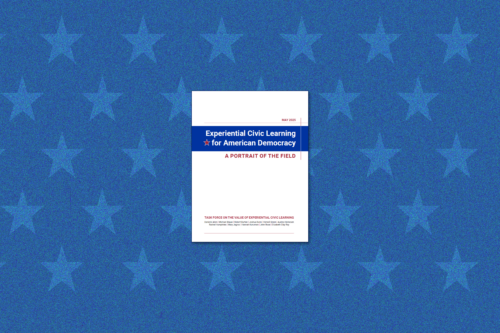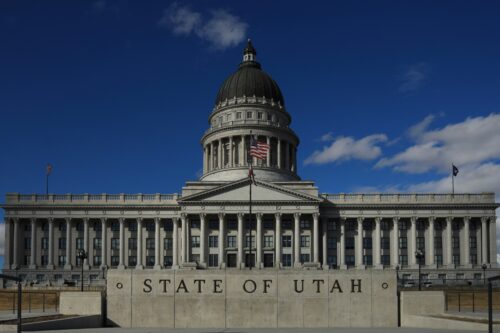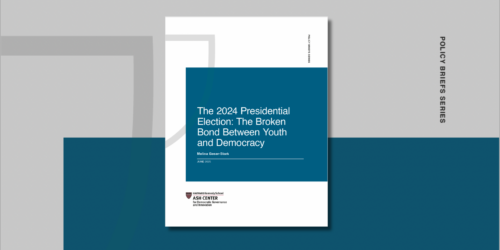
Additional Resource
Experiential Civic Learning for American Democracy
A new report provides a clear, actionable framework for effective experiential civic learning—what it is, why it matters, and how to do it well.
Occasional Paper
In this new Occasional Paper from the Allen Lab for Democracy Renovation, Hannah Kunzman and Danielle Allen offer a case study on contestation over K–12 civics curriculum in Texas.
Beginning in 2021, state legislators introduced or passed numerous bills intended to shape appropriate content in K–12 social studies curricula. The majority of these bills were, in the language of advocates, “essential knowledge” bills or “CRT [Critical Race Theory] abolition” bills. However, at the same time that these bills were making their way through state legislatures, there were also efforts to introduce, again in the language of advocates, “culturally responsive” curricula or “education equity” bills. Culturally responsive, a term coined by education professor Geneva Gay, describes a curriculum that acknowledges the diversity of experiences and identities that students bring to the classroom. Educational equity also often refers to the inclusion of instruction around structural racism and ethnic studies. In other words, distinctive substantive views about education have motivated two different strategies for shaping K–12 education through state legislation.
These different substantive views have become the site of intense political contestation and have sparked a new iteration of the so-called culture wars. Politicians have hit upon curricular contestation as having the potential for partisan political gain. Their engagement can often distort our view of what are very real and substantively important debates about how young people should be taught. These debates have the political salience they do because they touch upon deeply important ideas and questions. To have productive civic conversations, we must focus on the substantive issues at stake in current debates over K–12 education. This paper aims to shift the focus back to these crucial questions.
Contemporary debates over curriculum introduce questions about what it means to be a parent, what it means to be a citizen, and the role of both parents and educators in raising children who can fulfill the demands of citizenship. The full landscape of contestation is an exchange about models of citizenship and the relationship between private and public actors in shaping the lives of young people. It is also a debate about history. Whose voices matter in our historical narrative? How should we discuss the dark sides of the American story? How should we engage across differences in a democratic society?
This paper offers a case study on contestation over K–12 civics curriculum in Texas. The key takeaways are as follows. First, on-the-ground exchanges are complex and substantive between two camps, an “American greatness” camp and a “systemic transformation” camp. Second, there are many and various spaces of contestation requiring attention, including legislatures, school board elections, and classroom libraries. Third, the debates represent competing interpretations of civic values as articulated by both camps.
Additional Resource
A new report provides a clear, actionable framework for effective experiential civic learning—what it is, why it matters, and how to do it well.
Additional Resource
The bipartisan Utah Digital Choice Act aims to reform the social media ecosystem by giving users more choice and ownership over their personal data, while encouraging platform innovation and competition.
Policy Brief
The GETTING-Plurality Research Network submitted a public comment on the Development of a 2025 National Artificial Intelligence Research and Development Strategic Plan.
Feature
A collection of must-reads curated by Ash Center’s Reimagining Democracy team.
Feature
The official start of Summer is almost here, and Stephen Richer, Senior Practice Fellow in American Democracy and former elected Maricopa County Recorder, shares his summer reading list with a range of books focused on his work of democracy and elections, as well as his personal favorites.
Policy Brief
The 2024 election saw Donald Trump make significant gains among young voters, increasing his support among 18- to 29-year-olds by 10 percentage points. This report aims to investigate the deeper issues at stake that are causing this historical shift.





